*Magnolia grandiflora
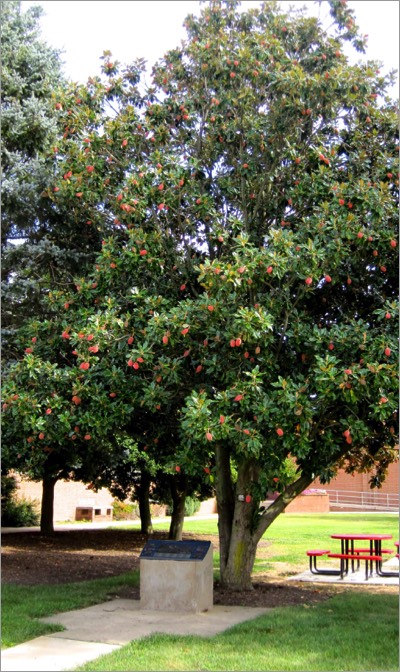
Southern magnolia, with outdoor Arboretum sign on concrete pedestal (northwest of Price Building; map coordinates E-29).
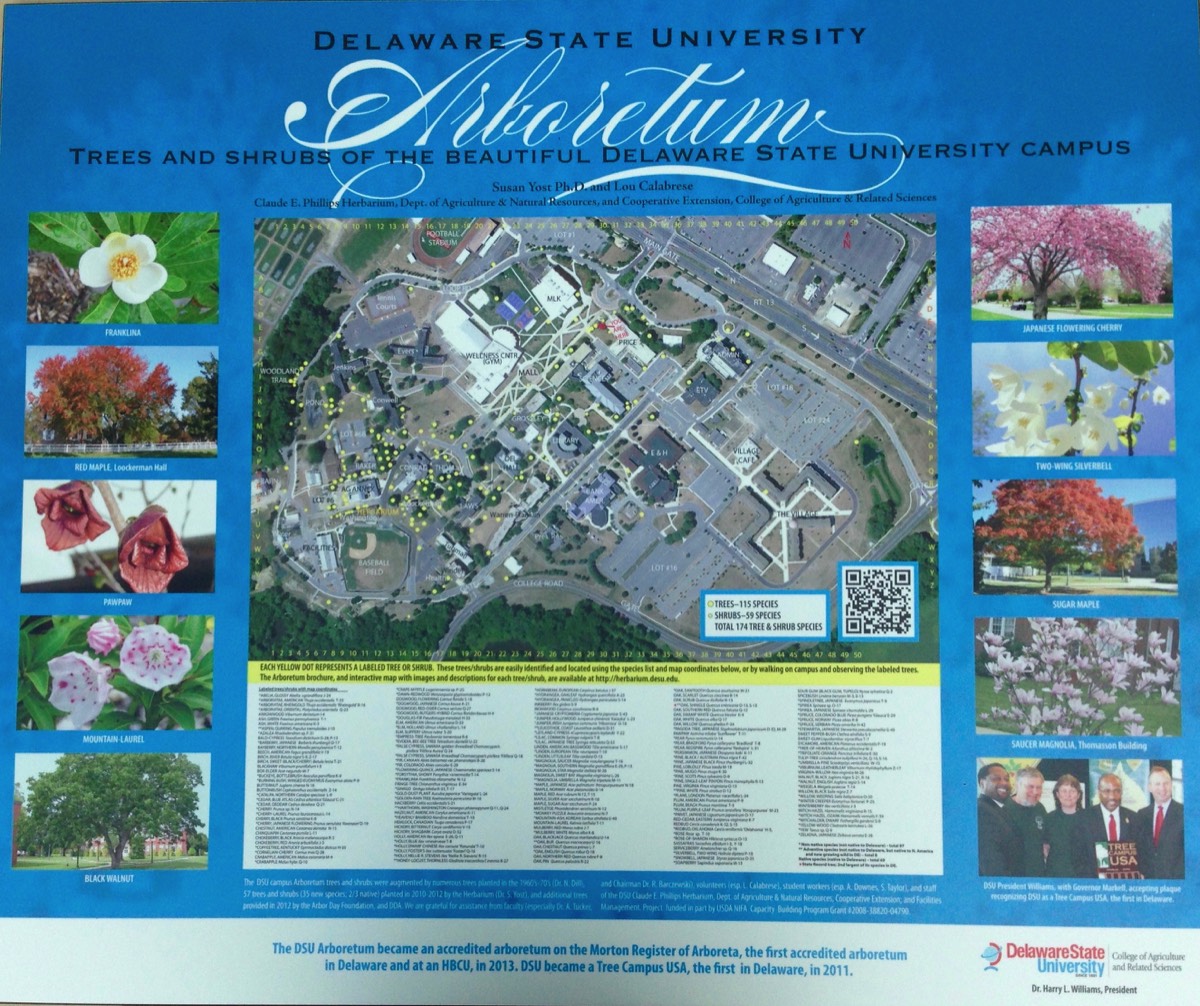
Outdoor Arboretum sign, 36”x30”, located on concrete pedestal pictured above.
*Magnolia grandiflora
SOUTHERN MAGNOLIA
Magnoliaceae
S.E. North America
Location: map coordinates E-29 (northwest of Price Building, on south side of Mall), N 39°11'14'' W 75°32'27''; and
P-13 (east side of Baker Building), N 39°11'9'' W 75°32'43''
Planting history: E-29: planting history presently unknown.
P-13: probably planted by Dr. N. Dill, 1960’s-1970’s.
Description:
*Non-native species (not native to Delaware)
SOUTHERN MAGNOLIA
Magnoliaceae
S.E. North America
Location: map coordinates E-29 (northwest of Price Building, on south side of Mall), N 39°11'14'' W 75°32'27''; and
P-13 (east side of Baker Building), N 39°11'9'' W 75°32'43''
Planting history: E-29: planting history presently unknown.
P-13: probably planted by Dr. N. Dill, 1960’s-1970’s.
Description:
- tall evergreen tree
- etymology: Magnolia after Pierre Magnol (1638-1715), French botanist; grandiflora = large flower
- leaves large, leathery, evergreen, glossy above; rust-colored hairs beneath
- flowers large, white, fragrant; ca June in Delaware
- fruit large, cone-shaped; aggregate (of follicles)
- seeds bright red, hang on silky threads from the fruit, rich in lipids; eaten by some birds and squirrels
- wood hard, heavy; used for making boxes
- native to southeastern USA, as far north as southeastern Virginia, mainly coastal plain
- commonly planted ornamental in Delaware; southern tree hardy to USDA zone 6
*Non-native species (not native to Delaware)
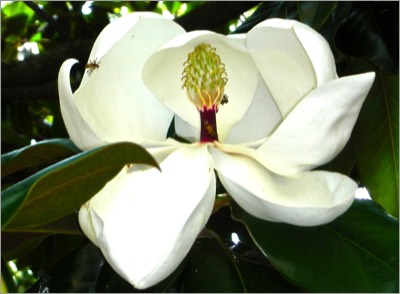
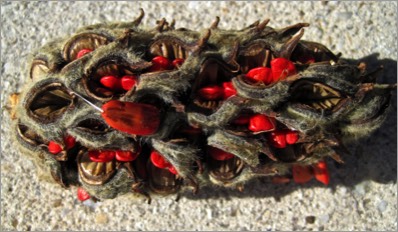
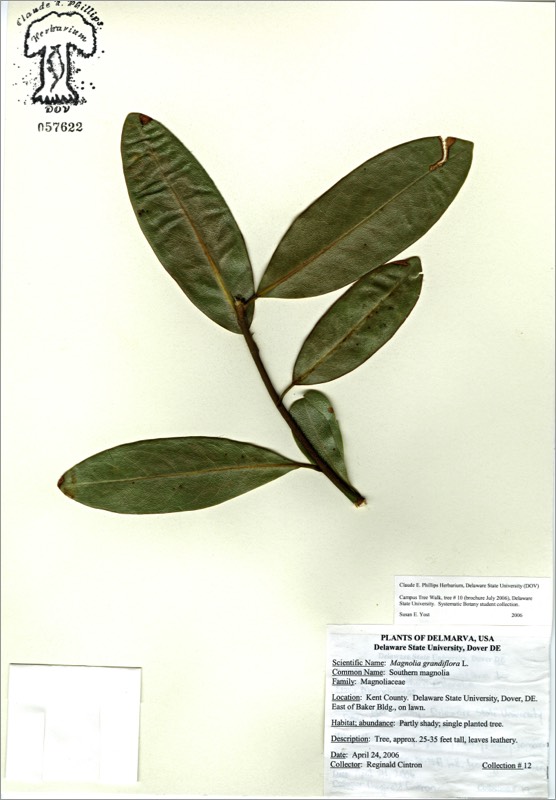
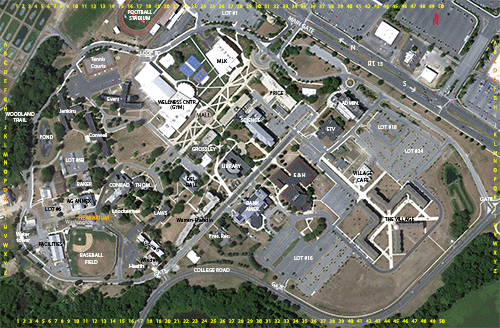
There are 2 labeled Southern magnolia trees.
HIT REFRESH TO START LOCATION GRAPHIC